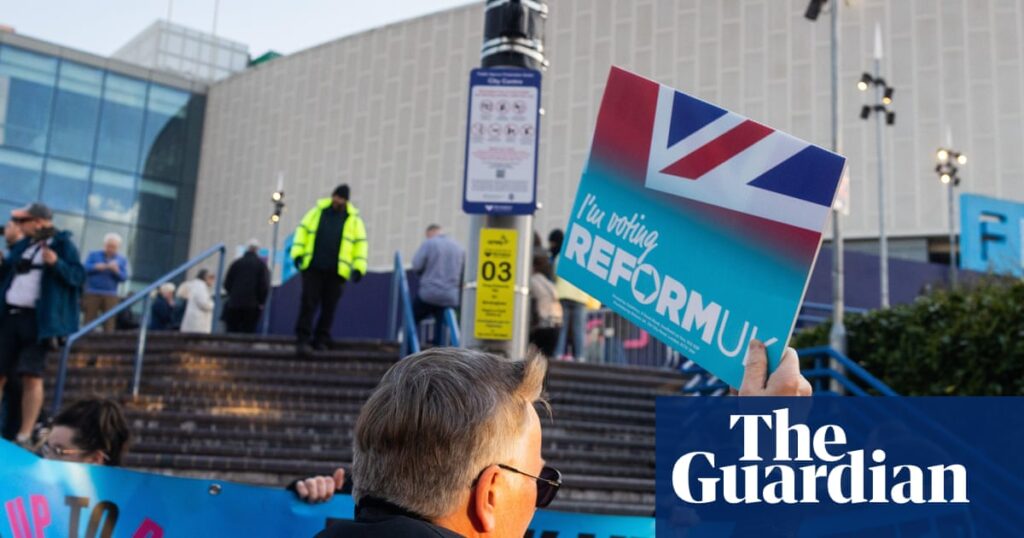Reform voters could be tempted to back Labour at the next election if there was more focus on a “bills and blue lights” strategy to repair the NHS and deal with the cost of living, according to research from the firm of the former cabinet minister Jim Murphy.
The polling of 1,000 Reform voters found that more than half would be more likely to vote Labour if the government lowered waiting lists and gave more money to the NHS. It also found that 75% of Reform voters wanted more action to help with the cost of living.
With Nigel Farage’s party leading in the polls, No 10 has been tackling the threat of Reform by attacking its record on the NHS, highlighting previous statements about it being open to an insurance-based model.
The home secretary, Yvette Cooper, also criticised Reform on Thursday for “continually attacking” police officers trying to tackle unrest and, more widely, the government has been trying to cast doubt on Reform’s economic competence.
Farage’s party has remained top of the polls for some months – at about 28-29% – on public unhappiness about the cost of living, economy and immigration, with its lead appearing to widen after Jeremy Corbyn and Zarah Sultana launched a new leftwing party.
The research on Reform voters, commissioned by Arden Strategies with JL Partners, looked in particular at former Labour voters who had opted for Farage’s party in 2024. It found that 58% said they could be tempted back to Labour with more NHS investment and 52% cited a reduction in hospital waiting lists would be key. More than half of those who had switched to Reform from Labour were concerned that Reform could merge or strike a deal with the Conservative party.
Four out of 10 of all the Reform voters questioned said they would be less likely to support Nigel Farage’s party if it proposed to change the NHS to an insurance-based model.
The research found that more than half of those who backed Reform at the last election thought there was a chance they would not vote for the party next time, with 46% saying they were “absolutely certain” to vote for Reform again.
Across other policy areas, about four in 10 Reform voters said they would be less likely to vote for the party if it was seen to be too friendly to Vladimir Putin and Russia, while almost eight in 10 said it was important to “stand up” to Putin.
Six in 10 of the Reform voters polled felt it was important for the party to support Ukraine and four in 10 said it was important for the party to support Israel.
after newsletter promotion
On the two-child benefit cap, there was division, with 44% wanting to scrap it and 34% supporting it, suggesting Farage is in touch with his voters after saying he would like to remove the cap. More than half were keen on the idea of a tax on wealth, with 56% backing the idea of an annual 2% levy on those owning assets worth more than £2m.
Murphy, the founder and executive chair of Arden Strategies, said the comprehensive poll of Reform voters suggested that “many are far from certain about how to vote at the next UK general election and are watching what progress the government makes on the key issues that matter to them, like the NHS and the cost of living”.
Tom Lubbock, the founding partner at JL Partners, said: “The good news for Labour is that Reform voters and those defectors from Labour have the same concerns as most of the country. They are ‘bills and blue lights’ voters; they want to see much more attention on their cost of living and are reserving judgment on the progress that Labour has so far made on the NHS. It’s a tough audience, as this research shows, but one that can be won back by campaigning on those issues to show that Labour shares the same interests.”
Lubbock said the challenge the Reform party faced was convincing the voters who had joined them since the election that they had the experience to govern.


